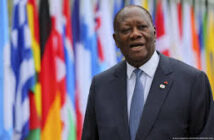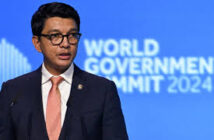
In a move that has surprised much of the climate community, philanthropist and clean energy advocate Bill Gates has published an essay calling for a strategic redirection of global resources — away from what he describes as the “doomsday” fight against climate change and toward combating disease and hunger in developing nations.
Gates, the founder of Breakthrough Energy, argued that while climate change remains a serious challenge, it “will not lead to humanity’s demise.” Instead, he said, the world’s top priority should be alleviating immediate human suffering, particularly in the poorest countries.
Calling this a “strategic pivot,” Gates outlined his position in a Tuesday, October 28 essay, released ahead of the upcoming COP30 global climate summit. He suggested that efforts to achieve near-term zero-carbon targets have often diverted funding from more direct, life-saving interventions.
“Climate change, disease, and poverty are all major problems,” Gates wrote. “We should deal with them in proportion to the suffering they cause.”
In a follow-up interview, Gates illustrated his argument bluntly: “If I had to choose between eradicating malaria and preventing a 0.1-degree rise in temperature, I’d let the temperature go up to get rid of malaria.”
Gates partly attributed his proposed shift to the growing strain on international aid budgets, citing former U.S. President Donald Trump’s cuts to programs like USAID, which once provided $8 billion annually for food and medicine. These cuts, he said, have intensified immediate humanitarian crises requiring urgent action.
“Health and prosperity are the best defense against climate change,” Gates asserted, pointing to research from the University of Chicago Climate Impact Lab suggesting that stronger economies and healthier populations can significantly reduce projected climate-related deaths.
However, the new stance has sparked sharp criticism from climate scientists, who accuse Gates of downplaying the systemic risks of global warming. While Gates denied that his comments amount to a full reversal of his climate advocacy, insisting that zero-carbon investments must continue, experts warn that his argument presents a false dichotomy.
Jennifer Francis, a senior scientist at the Woodwell Climate Research Center, argued that the suffering Gates prioritizes is often a direct consequence of climate change. “We can’t just treat the symptoms,” she said. “We have to cure the disease — emissions.”
Michael Mann, director of the Penn Center for Science, Sustainability & the Media, echoed this view: “There is no greater threat to developing nations than the climate crisis. He’s got this all backwards.”
In closing, Gates urged philanthropists, governments, and global organizations to focus funding on initiatives with measurable, high-impact benefits to human welfare — a call that signals a significant shift in emphasis from one of the world’s most influential climate advocates.


